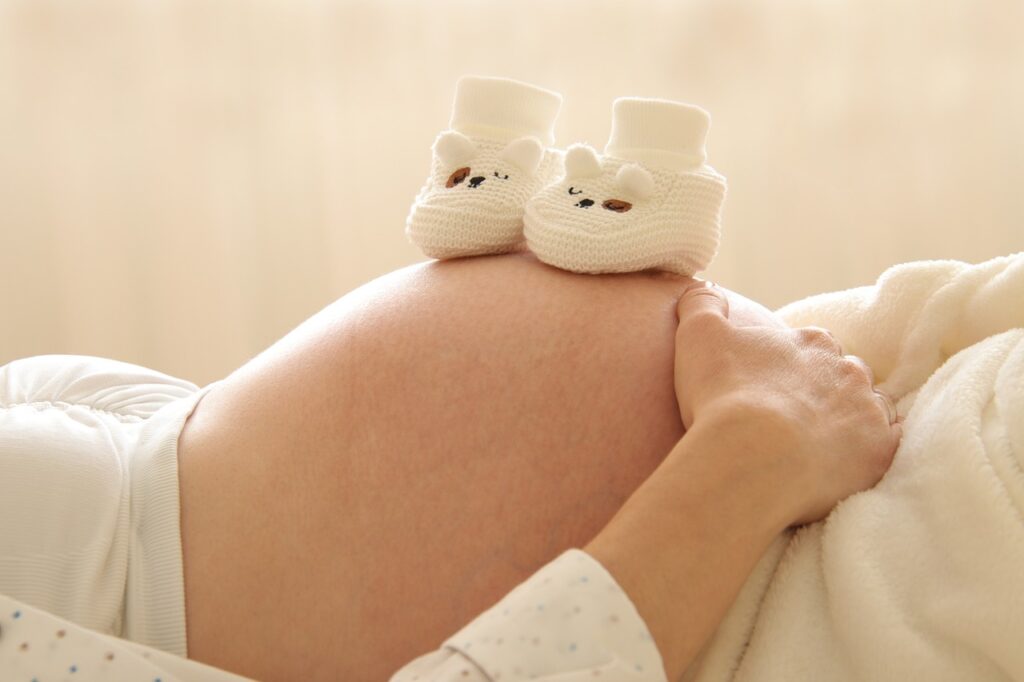
The timeline for starting a family has shifted with more women choosing to focus on careers, travel and personal growth before starting a family. The good news is that a healthy pregnancy after 35 is absolutely achievable for many albeit there may be some challenges such as added health risks and decline in fertility, but with careful preparation, most are able to navigate these obstacles.
This post covers essential steps to prepare your body and mind for a safe, healthy, and fulfilling pregnancy journey later in life. Whether it’s your first or your next, let’s break down everything you need for a smooth, healthy pregnancy—think self-care 2.0!
Understanding Your Fertility Timeline: Why it Matters After 35
Evidence shows that fertility naturally declines with age due to a gradual decrease in the number of oocytes(eggs) within the ovaries—a process known as atresia. At about 20 weeks of foetal development, there is an estimated peak count of 6-7 million oocytes, but at birth, this number decreases to 1-2 million and continues to decrease such that at puberty, there are only 300,000-500,000, and by 37 years there are 25,000 eggs.
Alongside the reduction in egg quantity, oocyte quality also reduces with age, affecting fertility. These changes are linked to shifts in hormone levels and the reduction in oocyte quality leads to an increased likelihood of chromosomal abnormalities.
What Are The Risks of Pregnancy After 35?
Pregnancy after 35 can still be healthy and fulfilling, but there are a few increased risks to be aware of. Here’s an overview of the main risks:
- Increased Risk of Genetic Conditions: The likelihood of chromosomal abnormalities, such as Down syndrome, increases with age.
- Higher Rate of Miscarriage: This is due to age-related decline in egg quality.
- Maternal Health Concerns: Conditions like hypertension and pregnancy-related hypertensive disorders, diabetes, or obesity can make things more complex, and they’re more common with age. These can also affect recovery post-birth.
- Placental Complications: There is a greater likelihood of conditions such as placenta previa, where the placenta attaches low, partially, or fully covering the cervical opening, and abruption, where the placenta separates too early, leading to bleeding.
- Caesarean Delivery: Older mothers may have a higher likelihood of needing a C-section, often due to complications like prolonged labor or foetal distress.
- Preterm Birth: Preterm birth and low birth weight are also more common, meaning babies might need extra care.
Ways to Prepare for Pregnancy After 35
- Schedule a Preconception Health check
A key first step in preparing for pregnancy after age 35 is to schedule a preconception health checkup with your healthcare provider.
This visit can help ensure your health is best before conceiving. Your doctor will review pre-existing health conditions, your family history and may recommend specific exams and tests, such as; hormone level assessments and ovarian reserve testing, to understand your fertility status.
Starting prenatal vitamins is a crucial part of preconception care, with folic acid, iron, and other supplements playing a significant role in supporting a healthy pregnancy from the very beginning.
For some women, this is also an opportunity to address any physical or functional concerns, such as opting for a labial reduction surgery, which can help alleviate discomfort and support body confidence leading into pregnancy.
- Focus on a Healthy Diet
Pregnant women should eat a healthy diet to support both maternal and foetal health. Aim for daily fruits and vegetables and diverse protein sources like lean meats, fish, eggs, legumes, nuts, and dairy for essential nutrients. Choose whole grains over refined options for added fiber and energy, and incorporate healthy fats from avocados and olive oil while limiting saturated and trans fats. Ensure you stay hydrated by drinking adequate amounts of water.
- Achieve and Maintain a Healthy Weight
Maintaining a healthy weight is crucial for preparing for pregnancy after 35, as it plays a significant role in both conception and overall pregnancy outcomes.
Understanding your Body Mass Index (BMI) is essential; being underweight can lead to irregular ovulation while being overweight or obese increases the risk of complications such as gestational diabetes and high blood pressure.
To achieve a healthy weight, focus on a balanced diet with portion control, practice mindful eating, and incorporate regular exercise into your routine. These strategies help you reach your ideal weight and support your overall well-being.
- Incorporate Exercise and Physical Activity
Regular exercise is vital for preparing your body for pregnancy after 35, as it supports weight management, reduces stress, and promotes overall health.
Engaging in safe exercises, such as walking, swimming, yoga, and strength training, can help you build endurance and flexibility, which are beneficial during pregnancy.
However, it’s important to avoid overly strenuous activities, especially during the conception phase, as moderation is key to maintaining a healthy balance. Instead, focus on enjoyable physical activities that keep you active without putting too much strain on your body.
- Managing Stress and Nurturing Emotional Well-Being
As women approach pregnancy after 35, prioritizing emotional well-being and stress management are essential. Elevated stress levels can interfere with hormonal balance and ovulation, which may affect fertility. Taking time for self-care, engaging in joyful activities, and maintaining a strong support network can help cultivate a positive mindset as one prepares for this significant life change.
- Consider Fertility Support
Understanding your cycle and fertility window is crucial for optimizing conception. Using ovulation Kits or Apps can help identify the best time for conception. Consult a fertility specialist if conception takes longer than six months. Remember, these days, there are so many options available to women, such as ovulation induction, intrauterine insemination, IVF, egg freezing, and donor eggs.
Conclusion
With the right preparation, many women over 35 successfully conceive and enjoy healthy pregnancies. By focusing on essential steps like; consulting with healthcare providers, making healthy lifestyle changes, managing stress, and tracking fertility, women can maximize their chances for a smooth pregnancy journey.






